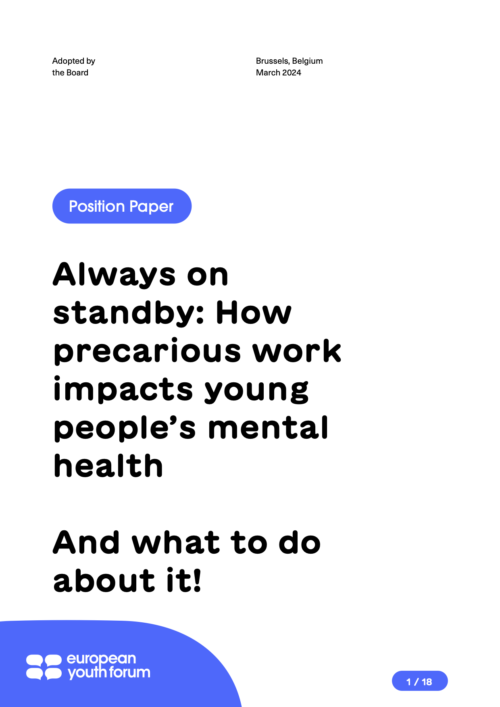Always on standby: How precarious work impacts young people’s mental health
For many young people across Europe, employment has increasingly become marked by uncertainty, insecurity and volatility. In everyday terms, this means more jobs that only offer temporary contracts that have to be renewed on a monthly basis, jobs where the number of hours can be changed arbitrarily, jobs where a shift can’t be turned down, because it’s not certain if and when the next one will come. This trend towards precarious work - as this paper highlights - has a substantial impact on young people’s mental health. Additionally, it affects their capacity to secure and organise their time, achieve a sense of dignity and obtain the necessary material means to achieve broader financial security.
Precarious work is not inevitable; rather, it is a result of political decisions and can therefore be mitigated and ultimately eliminated. This paper outlines actionable steps at both the national and EU level to address the issue, paving the way for a better relationship between mental health and the world of work for young people.
Would you like to know more? Get in touch!

Related publications

Workers’ Rights for the 21st Century
This paper makes the case for a new settlement of workers rights that no longer privileges certain segments of the labour market, but provides the same safety net and benefits for all, from day one on the job.

European Youth Forum’s proposals for the Council Recommendation on Minimum Income
The European Youth Forum welcomes the commitment of the Commission to propose a Council Recommendation on minimum income for adoption in 2022, to further implement Principle 14 of the European Pillar of Social Rights.

The cost of unpaid internships
New research reveals the financial, social and mental costs that unpaid interns must pay in order to enter the labour market.
